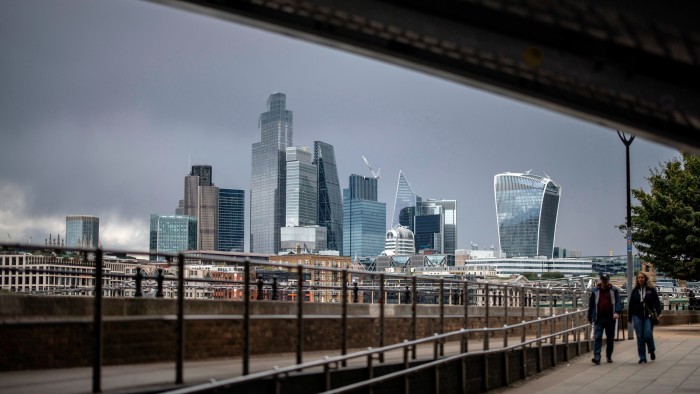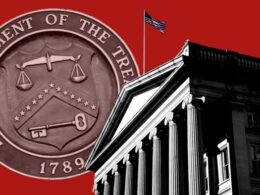Unlock the Editor’s Digest for free
Roula Khalaf, Editor of the FT, selects her favourite stories in this weekly newsletter.
The pay packages of UK-based chief executives officers have grown faster this year than those of their American rivals as British companies race to close the yawning gap.
The median pay at FTSE 100 companies that have reported this year has increased 11 per cent to $6.5mn, compared with a 7.5 per cent increase for US CEOs, according to data from ISS-Corporate, a division of proxy adviser Institutional Shareholder Services. The data comprise 320 S&P 500 companies that have reported through April 21.
The UK median pay figure pales in comparison to the US, where it is more than $16mn, on track for another record high, said ISS-Corporate.
“It appears that the campaign by big business and the finance lobby for higher CEO pay awards is persuading a lot of shareholders,” said Luke Hildyard, director of the High Pay Centre, a UK-based think-tank. The US’s pay culture contributed to “very wide economic inequality,” he said. “Do people in business and finance really want to replicate that in the UK?”
For years, British PLCs have paid executives smaller stock bonuses compared with the US, fomenting anxiety about the competitiveness for London-listed companies. Now, FTSE companies are racing to catch up by fast-tracking bonus increases at annual meetings this year.
Pharmaceutical group GSK has proposed to increase chief executive Emma Walmsley’s potential payout to $28.6mn a year if she achieves certain targets. Shareholders are expected to back the proposal at the company’s May 7 annual meeting. She was paid $15.3mn in 2024, ISS data shows.
Shareholders have already approved a pay increase for British American Tobacco chief executive Tadeu Marroco. He could receive up to $24.1mn if the company boosts its profitability and if its share price rises 50 per cent over three years. He was paid $14.1mn in 2024, according to ISS.
The changes underscore a shift to offer larger pay packages for better performance and signal a change in mood among shareholders to support more competitive remuneration for UK-based chief executives.
The UK’s Investment Association, a trade group, last year relaxed its stance on executive pay, giving companies more freedom to tailor pay to their own circumstances. In return, investors want disclosure on how companies benchmark their leaders’ pay against peers at other groups.
In the US, companies stock and options awards typically comprise 70 per cent of pay, ISS said. Although CEO bonuses typically include financial performance metrics, some companies award pay even when the share price is down. CEO pay increased this year at 50 S&P 500 groups where total shareholder return declined last year, ISS said.
The share price of Moderna, maker of a Covid-19 vaccine, has sunk to its lowest level since March 2020 as memories of the pandemic fade. Still, the company awarded one-time equity bonuses to chief financial officer James Mock and chief legal officer Shannon Thyme Klinger totalling $12mn each.
These special awards were paid “to retain and motivate these key leaders, particularly in light of the decline in our stock price”, Moderna said in regulatory filings. Chief executive Stéphane Bancel’s pay also increased to $19.9mn from $17mn.
Proxy adviser Glass Lewis has recommended shareholders vote against Moderna’s pay plan at the company’s April 30 annual meeting.
Moderna did not respond to requests for comment.
Amid increasing political tensions in the US this year, investors are unlikely “to rebel too much against [CEO] pay”, said George Georgiev, a professor at Emory University’s law school. On Wednesday, Goldman Sachs shareholders approved $80mn bonuses to two executives, despite support falling to a nine-year low.
“The asset managers are in go-along and get-along mode,” Georgiev said.
Source link










